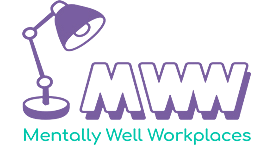The Rise Of Online Mental Health Training As First Aid Training For The Workplace
With increasing calls for mental health interventions, many offices are beginning to accept online training as an easy and effective way to support employee wellbeing and drive business growth. Whether it’s an induction or mental health first aid for the workplace, the popularity of online mental health courses cannot be understated.
Our own data suggests just how popular online mental health training is for first aid in the workplace.
To date, 15 000 employees have been enrolled in our web-based inductions and have accessed over 125 online mental health resources via our Wellness Hub. In 2021 alone, Mentally Well Workplaces trained over 500 employees and individuals in mental health first aid for the workplace and ran close to 50 mental health workshops— many of which were facilitated entirely online.
The reasons behind this increase in digital mental health interventions are manifold. In the face of a pandemic, these courses offer easily accessible, interactive and customisable options for promoting staff wellbeing. In addition, the success of internet-based mental health training is comparable to face-to-face methods and the benefits of eLearning are being increasingly recognised.
Employees Are Front And Centre
Perhaps the most significant change we’ve seen, however, and a major driver behind this uptake in online courses is the greater attention being given to staff and their wellbeing. In fact, LinkedIn data reveals there’s been a 13% increase in existing job titles that reference culture or wellbeing, in comparison to 2019. The National Health Foundation, for example, now has a Vice president of People and Culture. Coca-Cola has introduced a Benefits and Well-Being Manager, and Aon insurance has a Chief Culture Officer. Over at TikTok, there’s now a Global Well-Being Program Manager and, at Siemens Energy, a Head of Health and Well-Being.
When we consider this increased focus on employee wellbeing, it’s clear to see why online mental health courses are becoming more accepted as first aid for workplaces. The influx of jobs related to culture and wellbeing suggests that those high up in the organisation’s hierarchy are beginning to take employee wellbeing more seriously. No longer is mental health first aid for workplaces something to be ignored or pushed aside until next year.
Increasing mental health visibility also has a lot to do with this increasing acceptance of mental health training, not least because many employees are no longer wasting their time with organisations that don’t value employee wellbeing. We are more open about discussing mental health and bringing up any mental health concerns with our leaders. Thanks to this, the completion of mental health first aid for workplaces is on the rise.
Remote Work Is Here To Stay
The same LinkedIn study also indicated a 20% growth in job titles related to flexible work. For example, Microsoft’s newly introduced Director of Flexible Work and software company Atlassian’s Vice President of Team Anywhere. The emergence of these roles specifically focused on flexible employment arrangements reveals a change in the ways employees want to carry out their job — and indicates that organisations are listening. Flexible employment options are here to stay, whether that’s a completely remote model or a hybrid approach, so there’s a need for mental health training to match.
Their accessibility makes online courses popular for organisations with a fully remote or hybrid office setup. For instance, mental health first aid for workplaces can be completed easily online, from anywhere in Australia, and does not require employees to be in the office. This first aid for workplaces training offers the same benefits as an in-person course but with greater flexibility for remote staff.
The advent of leadership roles dedicated to culture, well-being, and flexibility is proof that office environments are becoming more and more centred around employees — their needs, their expectations and their satisfaction. What this means is that we’re likely to see a continued increase in the acceptance and implementation of online mental health courses for first aid in the workplace.
To avoid falling behind, organisations should consider how they can make e-mental health part of their office. This might mean training staff in mental health first aid for the workplace or offering online workshops.
When organisations invest in online training, it signals a commitment to employee wellbeing — no matter where in the world they’re operating from. It’s also a huge strategic move for companies to accept online mental health courses as part of their health and wellbeing strategy. Ultimately, happier employees mean better business.





























